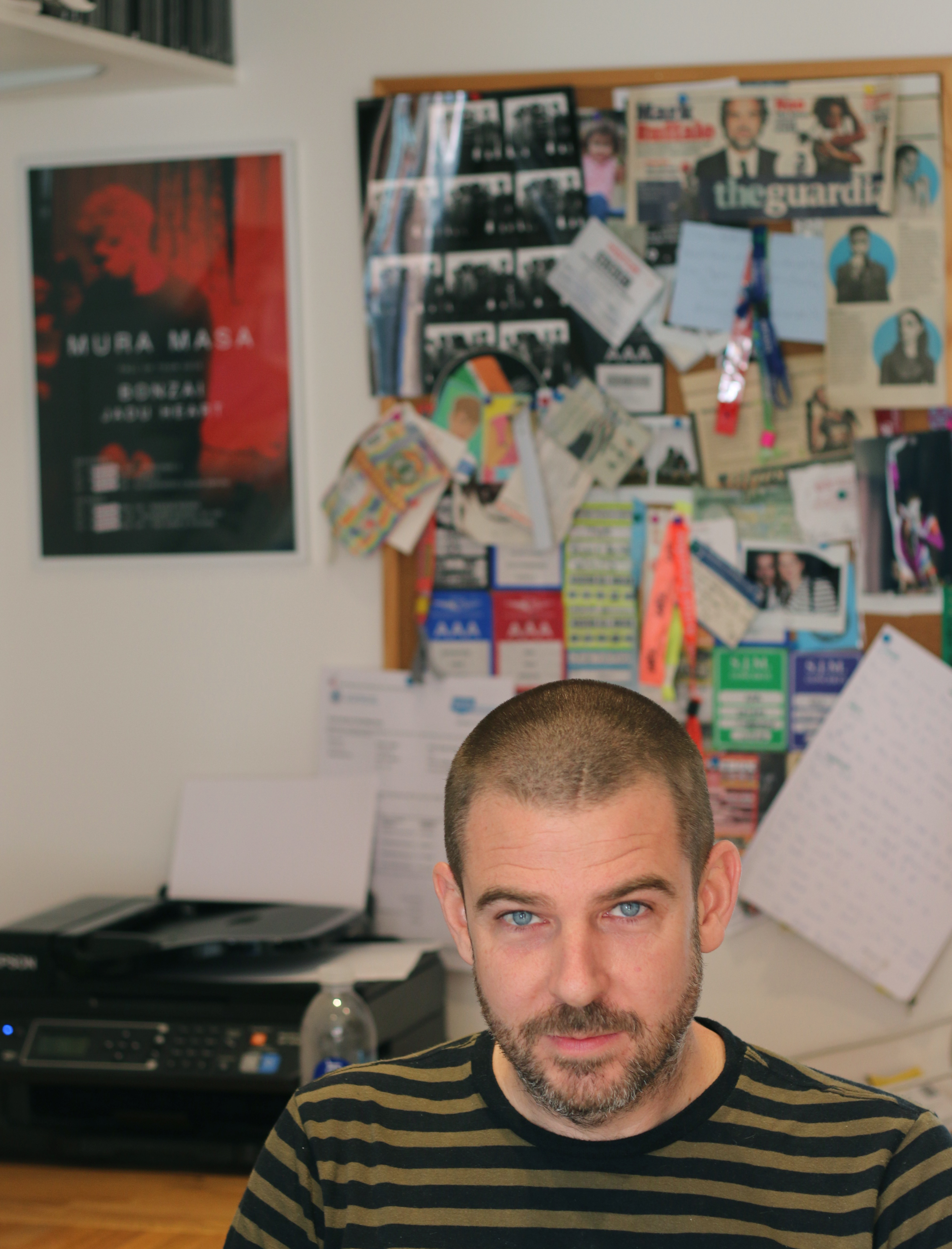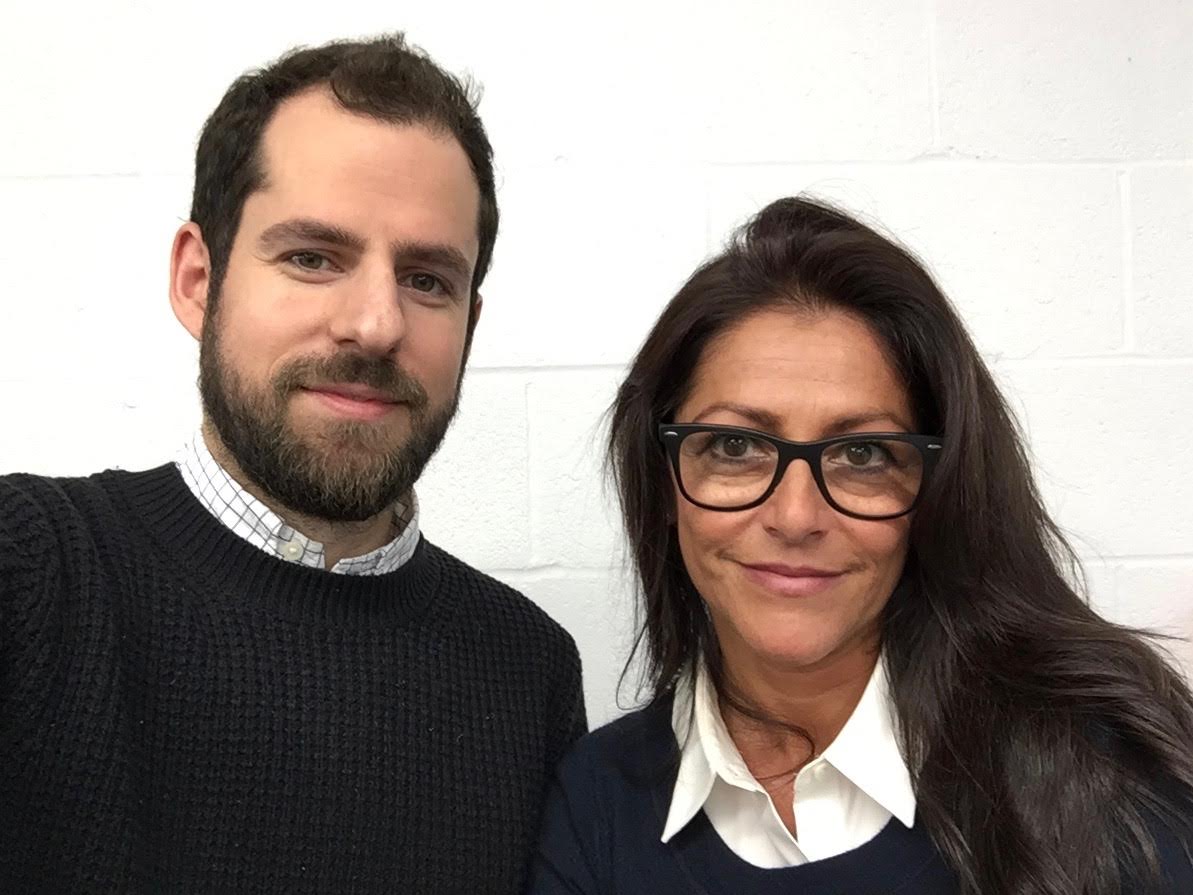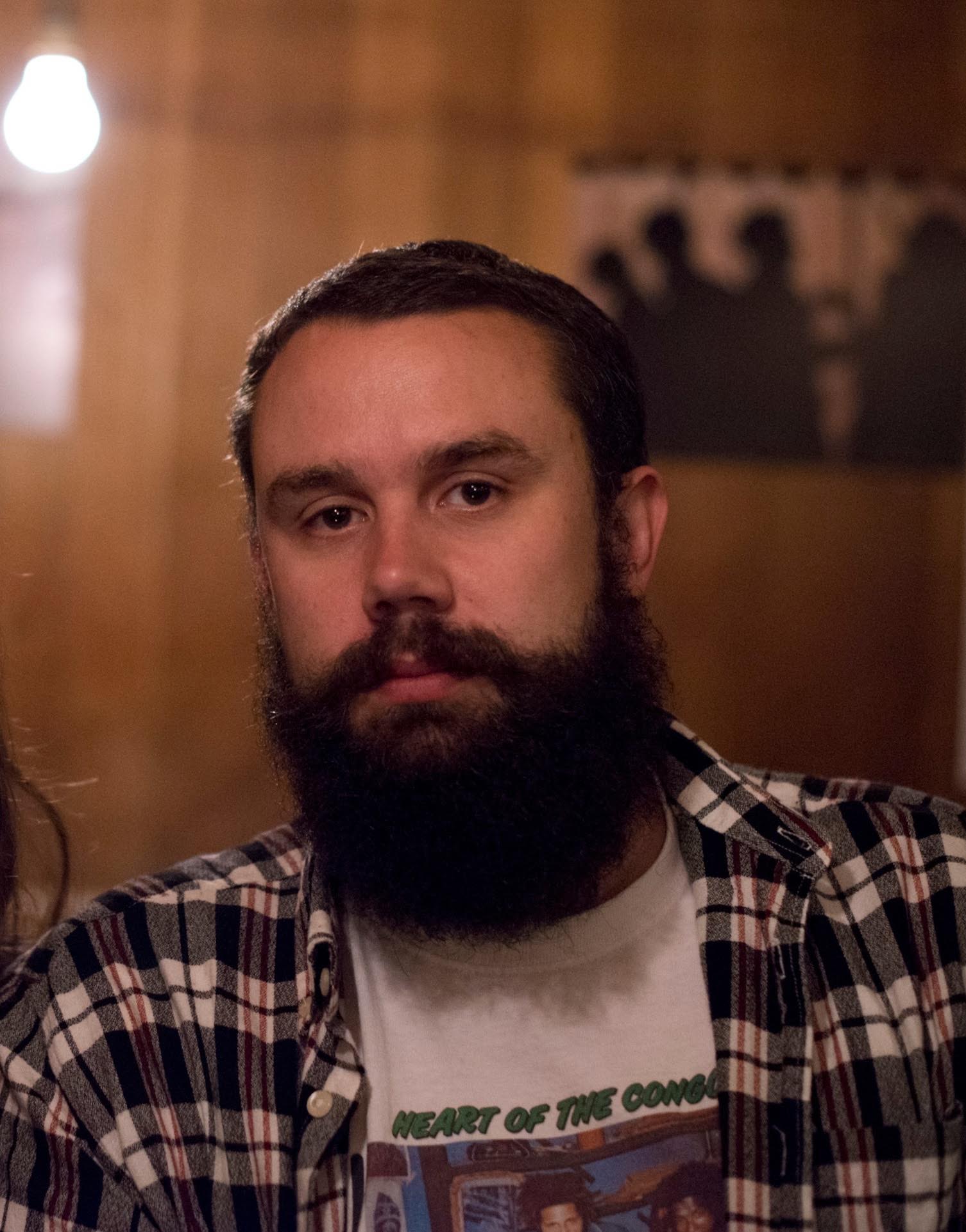AMA’s – Breakthrough Manager Nominees Interview
An abridged version of this piece appeared in Music Week
The MMF and FAC’s Artist & Manager Awards returned to London’s Troxy on Thursday November 4.
Once again, the UK music industry came together to reflect on and celebrate the achievements of artists and managers, as well as some of those that have supported their fine work in the biz.
Among the prestigious prizes up for grabs on the night was the Breakthrough Manager award, which highlights those who have had significant success in the past 18 months, helping to cultivate a breakthrough year for a band or artist through hard work and innovation.
Starting out in artist management in this day and age is one of the toughest undertakings in the industry. Finding and nurturing the talent, creating opportunities and building several businesses simultaneously all on a shoestring budget in the early days, should only be tackled by the most tenacious.
Therefore, there is a lot to be said for the fact that this year’s category carried no less than eight individual or partnership nominees. We asked each of them about their careers to date and their thoughts on the industry in this quick-fire Q&A.
Amy Morgan (Glass Animals)
Can you give us a bit of background on your company and who you manage?
 I manage a band called Glass Animals. We’ve been working together from the very beginning of the band’s career around 4 years ago. The band released their debut ‘ZABA’ in 2014 and their follow up ‘How to be a Human Being’ in August this year. They are signed to Paul Epworth’s label Wolf Tone.
I manage a band called Glass Animals. We’ve been working together from the very beginning of the band’s career around 4 years ago. The band released their debut ‘ZABA’ in 2014 and their follow up ‘How to be a Human Being’ in August this year. They are signed to Paul Epworth’s label Wolf Tone.
What’s been your biggest achievement to date?
I am incredibly proud of both albums musically and creatively. I think all you can strive for as an artist is to make the best piece of music you can and work everything else from there and I think Glass Animals have done that with both records. I’m very proud of the band’s achievements in the US, having a top 20 record, selling out the Greek and two nights at T5 were great moments, but it was equally important to me that we continued to grow across the whole country and that is really happening. I think it’s unusual for a British band. While the sold out show at Roundhouse wasn’t their biggest headline to date, it felt like a big achievement because it was symbolic of the band turning a corner in the UK – something that was very important for all of us. I’m excited about the Brixton show in March.
What’s the best piece of advice you’ve been given?
Work with people who make your life bigger.
What do you think the biggest challenge facing managers and their artists is today?
There are obviously major financial challenges. It is very hard for British bands who don’t have a fanbase outside of the UK to survive. I think the constant demand for ‘content’ is also challenging.
How do you see the manager’s role changing in the future?
I think the role of the manager is different with every artist. Some artists fit comfortably into an existing label structure, some don’t. Some work well with their publisher, some don’t. I think a manager has always had to fill the gaps and the weak links in the team around their act. Arguably there are more gaps and more weak links now than ever before but I think the basic task in hand is the same!
Martha Kinn (Years & Years)
Can you give us a bit of background on your company and who you manage?
I’m a partner at Machine Management (alongside Phil Morais and founder Iain Watt) and I manage Years & Years. We manage a range of artists, producers and DJs across different levels and genres, specialising in left field pop music… some signed to Indies, some to Majors and some we release ourselves. The one thing all of our artists have in common is integrity; they’re involved in writing their music and have a strong creative vision. We represent: Clean Bandit, Rejjie Snow, MIKA, The Magician, Rae Morris, Temptress, Sälen, Lxury, Fakear, Mark Ralph (writer/producer), R1 DJs Danny Howard and Phil Taggart, Friendly Fires amongst others.
What’s been your biggest achievement to date?
There so many amazing things I’m grateful to have achieved with Years & Years- a number 1 album and single, selling out Wembley Arena, having a top 10 album in over 20 countries but my proudest achievement to date is the work the band has done for the LGBTQ+ Community. Their mainstream success has afforded them a huge and culturally relevant platform and they’re continually using that to make a difference and shine a light on the community and important issues. The embodiment of that moment was Years & Years at Glastonbury this year, where Olly delivered a really powerful and emotional speech. That was such a proud moment because I felt I’d been a small part of something beyond the music – I really believe that people will look back and see that they pushed boundaries and helped changed things for the better.
What’s the best piece of advice you’ve been given?
This isn’t advice I’ve been given but it’s something I adhere to: You can’t put a price on an artist’s wellbeing.
What do you think the biggest challenge facing managers and their artists is today?
Breaking artists in the current landscape. The disparity is getting worse, massive established artists are staying at the top for longer whilst newer acts are struggling to get through the door and their opportunities to do so are minimal. If you’re trying to build a new artist, one of your few routes in is via streaming playlists…but how do you get a label to take a chance on an act without that support? It’s a frustrating chicken and egg situation. If you’re lucky enough to be signed how do you translate streams/momentum to fans and ultimately money without spending the huge amount of money needed that labels no longer want to spend?
How do you see the manager’s role changing in the future?
More work and more work! The development side is falling on us more than ever but that can be exciting and empowering as well as challenging. Success is being redefined, there are less rules and potentially more scope for independence and creative freedom. We’ll need to find more non-traditional and innovative ways to support that and that will involve more time, focus and patience. We’ll be forced to wear even more hats and find more ways to generate income. The fundamentals of artist management will stay the same; people will always want music, artists will continue to inspire us and they will still need us to protect them.
Johnny Pinchard & Dan Bearman (Snakehips)
Can you give us a bit of background on your company and who you manage?
DB: Johnny and I met working in A&R at Ministry of Sound. We later took a step back from A&R to build our management company which represents Snakehips, Royce Wood Junior, TCTS, FTSE and MXXWLL.
What’s been your biggest achievement to date?
DB: The campaign for ‘All My Friends’. Snakehips won an Ivor Novello and the song became certified Platinum in the UK, Triple Platinum in Australia and Gold in the USA.
JP: Keeping our sanity!
What’s the best piece of advice you’ve been given?
DB: Johnny’s encouraged me to keep our company independent. I thank him for that!
JP: He who speaks first loses!
What do you think the biggest challenge facing managers and their artists is today?
DB & JP: Longevity.
How do you see the manager’s role changing in the future?
JP: As managers have ever increasing access to data and analytics, it will become vital that they become experts in using these insights to best serve the artists.
DB: I think managers investing time and money into artists’ development, rather than labels, will become more and more expected.
Sam Stubbings (NAO/Mura Masa)
Can you give us a bit of background on your company and who you manage?
Native Management was set up 3 years ago when I left Warner Bros Records. My assistant and I work with four artists (Nao, Mura Masa, Bonzai, Jadu Heart), a songwriter (Saint Saviour) and a producer (John Calvert). It’s as much a group of friends as a roster. Everyone has their own thing going on but they often work together and everyone supports each other. The musicianship, creativity and work ethic within the group is exceptional. It really is the company I hoped I’d have and I think we’re unique to some degree.
What’s been your biggest achievement to date?
My biggest achievement was spotting the acts very early on in their careers and being patient. I am immensely proud when I look back at where we all were 2 or 3 years ago and the way everyone has grown musically and as people. There was a two-week period this Autumn where all four artists played sold out Shepherds Bush Empires (twice over, in Nao’s case). John Calvert and Saint Saviour were also there at every show having contributed and supported in so many ways. That was a wonderful moment.
What’s the best piece of advice you’ve been given?
I’ve met some very clever people in music but I find advice in the music industry quite contradictory. Best practice is too fluid in music for any advice to be a truth. You do hear what sounds like good advice one day then the exact opposite advice the next, often from the same person. I think the best advice would be not to listen to anyone else about how to do your job, but then again I‘d also say don’t listen to me.
What do you think the biggest challenge facing managers and their artists is today?
I think the biggest challenge is getting the balance between work and life. If you’re working with a very talented artist/musician, there is no end to the work and commitments you and he/she could take on. Choosing the right way to manage everyone’s working hours and you/your artist retaining a personal life whilst fulfilling their professional ambitions is definitely the biggest challenge I see. It’s something you have to really keep an eye on.
How do you see the manager’s role changing in the future?
I don’t think the role has or will ever change that much in terms of core responsibilities (I still think managers, labels, agents and promoters all play a vital role and will continue to do so) but I see managers having to battle to maintain their artist’s positioning more in the future. An artist’s vision and credibility are as important as the music for me. There are so many opportunities and so many demands made of artists in this fast-moving world of streaming, regular releases, collaborations, endless festivals, endless platforms and brand partnerships. Many of these new opportunities are fantastic but many are also short-sighted, more for the benefit of others than the artist and, worst of all, distasteful to the fans. I see the role of a manager more and more as the doorman to and diplomat for the artist’s wishes and long term goals.
Niko Michault & Danielle Livesy (Jack Savoretti)
 Can you give us a bit of background on your company and who you manage?
Can you give us a bit of background on your company and who you manage?
Play Until Something Happens (PUSH) Music Management was born out of the idea that good music and hard work will always lead to something. Founded on the 14th December 2010, our roster is made up of; Demons Of Ruby Mae, who are currently in the studio recording their debut album; Gizmo Varillas, who’s latest single recently went to the top of the German iTunes charts with his debut album coming out in early 2017; Jack Savoretti, who’s new album reached # 6 on release this October selling more than double that of his previous album; and finally P.S., who are a songwriting/production duo signed to BMG with cuts on Top 10 albums in the US, UK and Italy.
What’s been your biggest achievement to date?
Since PUSH’s inception we have endeavoured to grow and develop our acts’ careers both creatively and commercially whilst always retaining integrity and a long-term view. We are proud to say that right now all of the above is true for every act on our roster. That has to be the best achievement along with the milestones they come with along the way.
What’s the best piece of advice you’ve been given?
We have received so much good advice over the past few years it’s hard to think of just one piece that was more important than the others. Actually a lot of the team behind the MMF have been helpful on many occasions so arguably whatever they say. However, considering the current climate, probably the most fitting advice is that, no matter what the obstacle is and no matter how many people tell you differently, always fight for what you believe in because every problem is an opportunity.
What do you think the biggest challenge facing managers and their artists is today?
It has to be funding. With the majors no longer developing talent and the bigger indies focussing on a few key signings, there are few opportunities open to new acts which are and will always be the fuel for our business. It is true there are so many platforms and channels today where you can promote music but, without real funds to do so across all of them simultaneously, you just get lost in the noise. Whilst many new funding opportunities are available it is still not enough and the progress needs to continue.
How do you see the manager’s role changing in the future?
More and more we expect to see management companies that will take advantage of the new infrastructure that’s emerging across the industry. Being able to outsource to collecting companies and label services while retaining rights and exploiting big data and online platforms give managers opportunities they never had before. To continue on from the previous question, managers with the right sort of funding could now achieve a lot of what small labels can. This and the fact that their goals are in line with those of the artists could mean we see management companies being the real developers of the music industry… If they aren’t already.
Matt Johnson & Steve Ambler (Oh Wonder)
Can you give us a bit of background on your company and who you manage?
MJ: I am a manager, part of the London office of Red Light Management. I’ve been there four years, being independent prior to that. I manage Oh Wonder, Lewis Watson, Ten Tonnes, Banfi, Kimberly Anne and Sarah Close.
SA: SB was started ten years ago by Simon Bobbett to manage The Wombats. The SB roster includes Larry Hibbitt, Oh Wonder, Luke Fitton, Molly Rainford and Sundara Karma.
What’s been your biggest achievement to date?
MJ: Oh Wonder headlining a sold out Roundhouse exactly a year after debuting live at The ICA was pretty special, but nothing so far has matched the initial buzz of the build-up of that campaign or indeed Lewis Watson’s early career; playing to sold out US audiences before any media attention. More than that, working on developing great music and opportunities with all my artists, and seeing something come to fruition in new and interesting ways is always a massive achievement, and Oh Wonder’s debut campaign being used a case study in so many different meetings is always nice to hear about!
SA: Everything Oh Wonder have achieved so far. Through the band’s hard work, incredible talent and creative vision we got to a position where we were able to do everything on the band’s terms and set their business up in a way that works for them as well as for the companies we partnered with. We approached things differently across the board, trusted our gut feelings, did things people said we shouldn’t do and built a sustainable business.
What’s the best piece of advice you’ve been given?
MJ: A few age old cliches, but good stuff rises to the top (however long that takes!), and generally be respectful to people on the way up or down (unless they’re a dick to you, then the rules may change!)
SA: I had a good boss in Rak Sanghvi when I was a publisher, who I learnt a lot from. He had a list of three rules that he drummed into me, which I still use on a daily basis.
 What do you think the biggest challenge facing managers and their artists is today?
What do you think the biggest challenge facing managers and their artists is today?
MJ: People have such short attention spans nowadays, so it’s a real challenge to grab attention and retain it in a very noisy cluttered landscape. Quality of output on a song by song basis is more and more important.
SA: The biggest challenge we all face is dealing with the vast number of people scattered across the industry who are stuck in their ways and the archaic nature of some deals that are still getting done.
How do you see the manager’s role changing in the future?
MJ: Essentially driving more and more of a campaign, and overseeing as much as possible. Really being in the driving seat, dealing directly with partners on every level, and basically getting more emails and less sleep than ever before. Hopefully the rewards will outweigh all of this; they generally do with some patience, and managers always need patience!
SA: I’d like to say getting even more involved in every area of an artist’s career in the early stages and beyond, as we find more ways to do things independently, but I also think we could see growth in artists doing more themselves and possibly a rise in managers acting as consultants to artists. Today’s artists are very clued up on how everything works, streaming platforms are happy to deal with artists direct and support in the early stages, and in a world where you can build a career without some of the traditional avenues, an artist can start a good business on their own and bring in a manager when they’re ready to take it to the next level.
Claire Southwick (Spring King)
 Can you give us a bit of background on your company and who you manage?
Can you give us a bit of background on your company and who you manage?
I launched Primitive Management in 2014. I manage two artists; Spring King and Hannah Lou Clark, plus four producers; Tarek Musa, Paul Savage, David Pye and Steph Marziano.
What’s been your biggest achievement to date?
Spring King’s track ‘City’ launching Beats1 (that moment was so surreal, we had no idea it was going to happen so it was an incredible surprise), setting up my own management company and obviously being nominated for Breakthrough Manager at the Artist & Manager Awards. I feel very privileged to be nominated.
What’s the best piece of advice you’ve been given?
I have been given two bits of advice that are equally great: Stay true to yourself – it’s easy to become overwhelmed in an industry that can sometimes be very surface. Not losing your identity and also keeping your integrity is so important. And never be afraid to ask, the worst they can say is no – You will never get anywhere if you don’t ask for that little bit more, or push for that extra something for your artist. ‘It’s fine to have a guest list of 40 instead of 10 isn’t it?’
What do you think the biggest challenge facing managers and their artists is today?
I definitely think that funding is always the biggest challenge. No matter how promising an artist, you will never progress without the means to keep momentum going. In such a competitive industry you need to continuously build your profile with constant assets.
I have been lucky with Spring King as I’ve managed to get funding and continued support from PRS For Music Foundation for the likes of SXSW and CMJ as well as Momentum funding, without which we couldn’t have recorded the band’s debut album before signing a deal. Support from organisations such this as can be intrinsic in an artist’s career.
How do you see the manager’s role changing in the future?
I think the manager’s role is always changing or perhaps adapting to an ever-changing industry. The advent and constant progression of the digital world and its many minefields means that both artists and managers need to be continuously aware. You need the ability to continually educate yourself on current issues in the industry such as streaming income (Youtube/Soundcloud) including how much an artist actually receives once costs from all sides have been taken. A manager also needs to be increasingly prepared to cover all roles while developing an artist to a point where there is interest and I think this will also become more and more prevalent.
Winner: Tobe Onwuka (Stormzy)
Can you give us a bit of background on your company and who you manage?
My company #Merky started in 2014, set up by myself and a few friends. I currently manage Stormzy and Dj Tiiny.
What’s been your biggest achievement to date?
Achieving a Top 10 UK chart single independently.
What’s the best piece of advice you’ve been given?
Trust your gut instinct.
What do you think the biggest challenge facing managers and their artists is today?
Too many external voices and opinions. Sometimes these can cause a divide between artist and manager.
How do you see the manager’s role changing in the future?
I feel managers will be looking after more than just “music business” for their artists. A lot already do. More and more artists are entering fields outside of music. Managers are constantly having to learn new methods and network beyond the music industry.